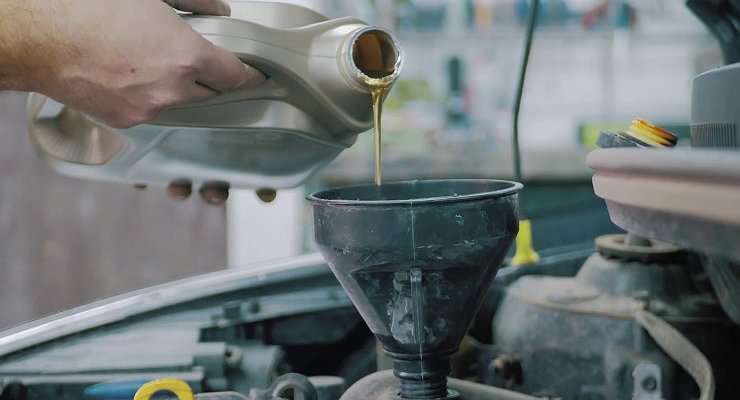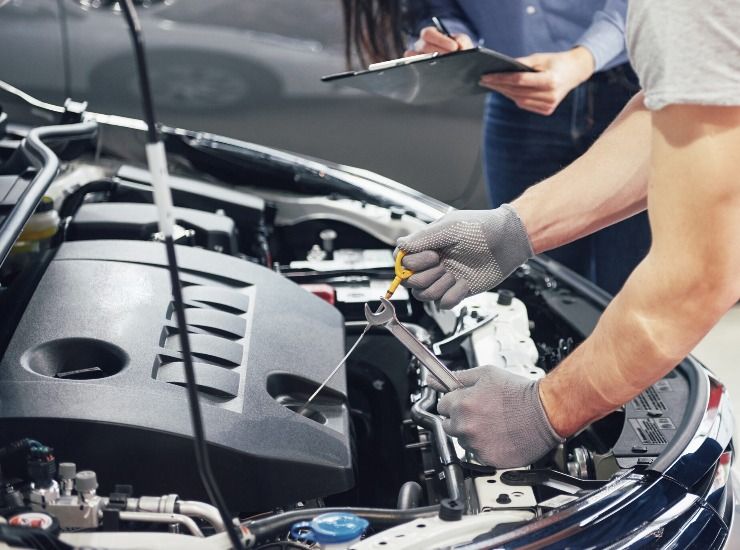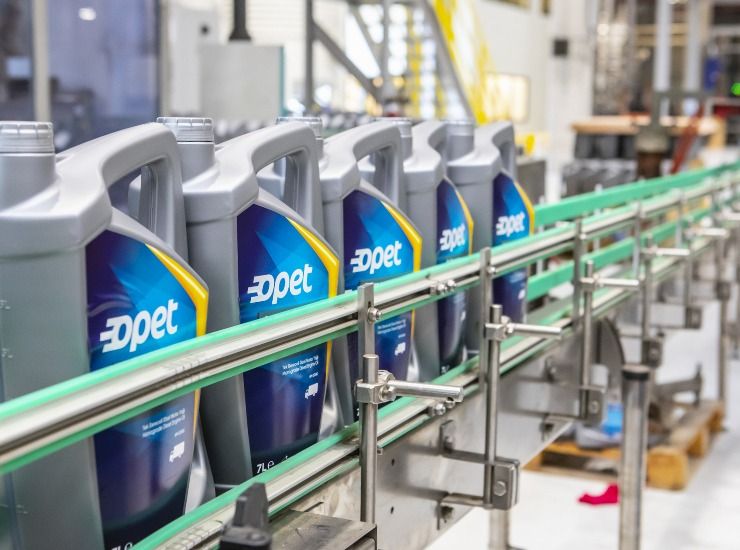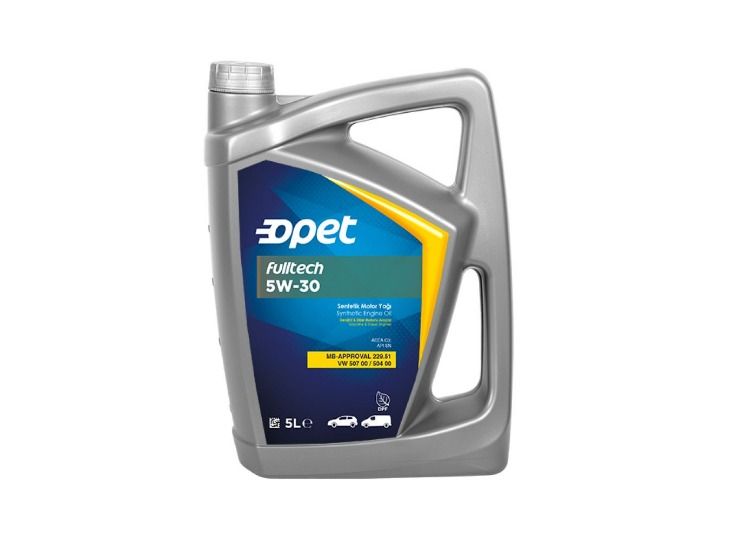Which engine oils “from new” are not harmful to the engine of your car
- August 22, 2022
- 0
After the official departure from the Russian market of a whole galaxy of popular brands of car oils, the store shelves gradually began to be filled with cans
After the official departure from the Russian market of a whole galaxy of popular brands of car oils, the store shelves gradually began to be filled with cans

Most motorists when choosing motor oil for their “horse” are guided only by the viscosity parameter, it must comply with the recommendations of the car manufacturer. Well, the viscosity characteristics of the product are indeed very important, but in addition to the stability of the oil’s aggregate state at different temperatures, the so-called “tolerance” and “compliance” are no less important parameters. And between these two concepts, there is a difference that must be taken into account when choosing a lubricant for the engine.
“Tolerance” means that the oil has been tested for conformity by a specific car manufacturer and has received a certificate confirming this.
And “Compliance” says “only” that the oil, sorry for the tautology, meets the requirements of the car manufacturer, but does not have the coveted certificate. This does not mean at all that the oil that is not certified by the car manufacturer is worse than the one that the cherished piece of paper was issued for. In addition, it can be better than greases with tolerances for a number of indicators. For example, it is advantageous for car manufacturers that the owners of their four-wheel product come to the dealer for an oil change at least once every 10,000 kilometers, while high-quality grease with modern additives can easily ‘walk’ 20,000 kilometers. And most likely, a more persistent lubricant will not be able to get homologation from automakers, because it is unprofitable for business.
There are many examples of high-quality motor oils without official approvals, but with good performance. For example, manufacturers from Turkey are now actively entering the topic of “oil” in our country. Yes, yes, Turkey is not only resorts where there are “all inclusive” and vegetables with fruit, they are also technically quite successful at this.
One of the largest enterprises in the country that produces high-quality oils is OPET Lubricants. Note that the oils from this particular manufacturer are offered by a number of car manufacturers as their original product. For example, the Ford Otosan plant uses OPET lubricants as the first fill. In addition, the oil refinery line even includes a separate line of FMY oils and automotive chemicals, the original products for Ford cars. In other words, the quality of OPET lubricant products is completely satisfactory to Ford and it is approved for use in Ford commercial and passenger vehicles around the world.
Also in the line of this manufacturer there is Opet Fulltech 5W-30 oil, specially designed for Volkswagen, BMW and Mercedes-Benz cars, as indicated by the corresponding markings on the bus. This product is really high-tech, because its special formula increases the efficiency of exhaust gas after-treatment systems (diesels have a particulate filter, petrol cars have a three-level catalytic converter) and extend their service life.
The modern additive package in Opet oils maintains the viscosity stability of the lubricant, even under prolonged load and high temperatures, and provides maximum engine protection against wear. Opet lubricants have excellent cleaning properties, guaranteeing the cleanliness of the engine inside, without the formation of sludge and coking of rings, even during repeated maintenance.
Equipped with what is called “the latest technology”, the OPET lubricant factory in the Turkish city of Izmir produces not only oils for car engines and gearboxes, but also high-quality technical fluids for cars: antifreeze, brake fluids, automotive cosmetics. Now the whole variety of high-quality products of Turkish OPET lubricants is available in Russia.



Most motorists when choosing motor oil for their “horse” are guided only by the viscosity parameter, it must comply with the recommendations of the car manufacturer. Well, the viscosity characteristics of the product are indeed very important, but in addition to the stability of the oil’s aggregate state at different temperatures, the so-called “tolerance” and “compliance” are no less important parameters. And between these two concepts, there is a difference that must be taken into account when choosing a lubricant for the engine.
“Tolerance” means that the oil has been tested for conformity by a specific car manufacturer and has received a certificate confirming this.
And “Compliance” says “only” that the oil, sorry for the tautology, meets the requirements of the car manufacturer, but does not have the coveted certificate. This does not mean at all that the oil that is not certified by the car manufacturer is worse than the one that the cherished piece of paper was issued for. In addition, it can be better than greases with tolerances for a number of indicators. For example, it is advantageous for car manufacturers that the owners of their four-wheel product come to the dealer for an oil change at least once every 10,000 kilometers, while high-quality grease with modern additives can easily ‘walk’ 20,000 kilometers. And most likely, a more persistent lubricant will not be able to get homologation from automakers, because it is unprofitable for business.
There are many examples of high-quality motor oils without official approvals, but with good performance. For example, manufacturers from Turkey are now actively entering the topic of “oil” in our country. Yes, yes, Turkey is not only resorts where there are “all inclusive” and vegetables with fruit, they are also technically quite successful at this.
One of the largest enterprises in the country that produces high-quality oils is OPET Lubricants. Note that a number of car manufacturers offer oils from this particular manufacturer as their original product. For example, the Ford Otosan plant uses OPET lubricants as the first fill. In addition, the oil refinery line even includes a separate line of FMY oils and automotive chemicals, the original products for Ford cars. In other words, the quality of OPET lubricant products is completely satisfactory to Ford and it is approved for use in Ford commercial and passenger vehicles around the world.
Also in the line of this manufacturer there is Opet Fulltech 5W-30 oil, specially designed for Volkswagen, BMW and Mercedes-Benz cars, as indicated by the corresponding markings on the bus. This product is really high-tech, because its special formula increases the efficiency of exhaust gas after-treatment systems (diesels have a particulate filter, petrol cars have a three-level catalytic converter) and extend their service life.
The modern additive package in Opet oils maintains the viscosity stability of the lubricant, even under prolonged load and high temperatures, and provides maximum engine protection against wear. Opet lubricants have excellent cleaning properties, guaranteeing the cleanliness of the engine inside, without the formation of sludge and coking of rings, even during repeated maintenance.
Equipped with what is called “the latest technology”, the OPET lubricant factory in the Turkish city of Izmir produces not only oils for car engines and gearboxes, but also high-quality technical fluids for cars: antifreeze, brake fluids, automotive cosmetics. Now the whole variety of high-quality products of Turkish OPET lubricants is available in Russia.
Source: Avto Vzglyad
I’m Sandra Torres, a passionate journalist and content creator. My specialty lies in covering the latest gadgets, trends and tech news for Div Bracket. With over 5 years of experience as a professional writer, I have built up an impressive portfolio of published works that showcase my expertise in this field.